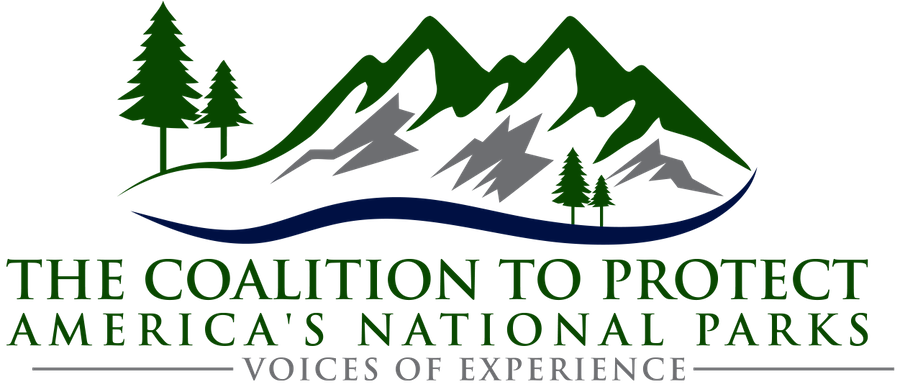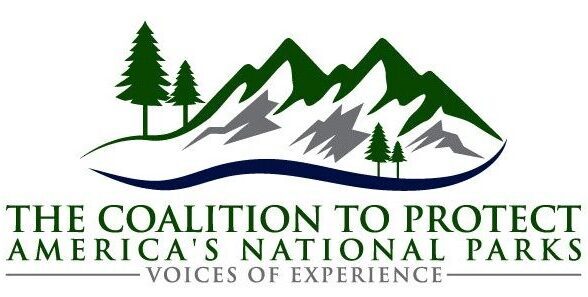
Statement for the Record
Michael B. Murray
Chair of the Executive Council
Coalition to Protect America’s National Parks
Subcommittee on National Parks, Forests, and Public Lands
Committee on Natural Resources
House of Representatives
Hearing on Various National Park bills
June 14, 2022
Chairman Neguse, Ranking Member Fulcher, and members of the Subcommittee, I am Michael B. (Mike) Murray, Chair of the Executive Council Chair of the Coalition to Protect America’s National Parks (Coalition). The Coalition is a non-profit organization composed of more than 2,200 retired, former and current employees of the National Park Service (NPS) who collectively have over 40,000 years of experience managing and protecting our national parks. The Coalition studies, educates, speaks, and acts for the preservation of America’s National Park System.
I am pleased to submit this statement for the record on some of the national park bills on your agenda for today’s hearing.
H.R. 7615, the Lodging Options Developed for Government Employees Act
H.R. 7615 would extend the authority of National Park Service to enter into partnerships to develop housing for park employees and other key park cooperators both on and off park lands. The coalition believes this bill is very important to the NPS and strongly supports it. We provided comments on several drafts of the legislation prior to its introduction and worked with the minority staff to respond to issues that our experience has shown need to be addressed in order for the NPS to effectively use the housing authority provided in Title 54 of the United States Code.
The lack of housing for national park employees, both permanent and seasonals, is well-known and only continues to grow. This problem includes a large amount of deferred maintenance of park housing units. Of the NPS’s 4,669 total housing units, there are 868 units in poor or obsolete condition. The NPS has made efforts to address this through the assignment of funding from the Legacy Restoration Fund of the Great American Outdoors Act to several significant park housing projects in the FY 2021 and FY 2022 project lists. Further, the budget the president sent to Congress for FY 2023 includes a request of $8 million in the NPS Construction Account to address employee housing needs. The coalition is supportive of these efforts and combined with the additional authority provided in H.R. 7615, we believe they will assist the NPS in being able to provide for the housing needs of its employees.
The inadequate supply and quality of employee housing has become an acute problem at a number of parks in recent years. For example, in parks located near small gateway communities or near resort areas with limited or unaffordable private-sector housing, the availability of park housing is often a key limiting factor in the number of seasonal employees a park can hire, which has a direct impact on the level of visitor services a park can provide. With park visitation increasing dramatically across the country, more permanent park rangers and support staff are already urgently needed. Similarly, adequate park housing is needed to support the recruitment and retention of those employees.
Additionally, the NPS has a number of partnerships with individuals and groups that are essential to the management and operation of the parks. Under NPS management policies, these individuals are eligible to reside in park housing. Those potential residents include concession employees, volunteers in the parks, Student Conservation Association volunteers, researchers, essential cooperators such as schoolteachers, health personnel, contractors, and state or county employees, as well as employees of another federal agency. These individuals can be critically important in remote areas where their services would otherwise be a great distance from the parks.
We understand the subcommittee has been given several examples of the major housing challenges facing national parks in the state of Arizona. These examples can be replicated in parks throughout other areas of the country. But it is not just the additional authority provided by H.R. 7615 that the NPS needs. Sufficient funding for NPS housing remains the largest barrier to addressing the issue. Congress needs not only to enact H.R. 7615, but also to complement that with more funding directed to NPS housing in each annual appropriations act. Both are important components to addressing the shortage of park housing.
The coalition notes one area that is important to the park housing issue that is not addressed in H.R. 7615. In situations where the only feasible area to build housing is outside the boundary of a park, it may be necessary for the NPS to acquire a parcel of land for this purpose. While the NPS has minor boundary adjustment authority that could potentially address the need for the acquisition of a parcel of land for housing purposes, the criteria are so specific that NPS may not be able meet each of them for all potential housing acquisition needs that might arise. The alternative is for NPS to return to Congress to enact a bill to allow the acquisition of that parcel for a specific park.
As you know, that can take years to accomplish, leaving the housing issue at that a park unaddressed for a long period of time, and potentially losing a partnership that is unwilling to wait for congressional action. We urge the committee to consider adding some specific, limited authority that would allow the NPS to acquire a parcel of land for housing purposes without having to return to Congress for enactment of a specific bill. We believe the parameters of such language could be drawn tightly enough with perhaps giving the authorizing committees in the House and Senate the ability to sign off on any proposed acquisition before it proceeds. We believe such an amendment would improve H.R. 7615 and facilitate the use of its authorities in an expeditious manner.
H.R. 7693, the National Park Foundation Reauthorization Act of 2022
H.R. 7693 would reauthorize the authority for the National Park Foundation (NPF) to receive annual appropriations from Congress to carry out its role in raising matching funds that would benefit the work of the NPS. H.R. 7693 would increase the authority for annual appropriations from $5 million to $15 million. The Coalition strongly supports this bill.
While the National Park Foundation was permanently established by Congress in 1967, it was only during the Centennial year of the NPS in 2016 that the NPF was authorized to receive federal appropriations on an annual basis. The purpose of this annual appropriation was to encourage and leverage contributions to the Second Century Endowment for the National Park Service that was authorized to be established within the NPF by the National Park Service Centennial Act, P.L. 114-289.
The NPF was established to encourage philanthropic gifts for the benefit of our national parks. Since the time of its establishment, the NPF has raised millions of dollars that annually benefit the work of the NPS and help ensure the conservation of the natural, cultural, and historic resources found in the national parks throughout the nation. The impact of the NPF has only grown over the years as they have been highly successful in bringing additional contributions to the foundation through its leveraging of the annual appropriations provided by Congress. Due to their success, we strongly support the extension of the authority for these annual appropriations through FY 2030, and the increase of the annual appropriation to $15 million. We are confident the NPF will continue its excellent work on behalf of our national parks.
H.R. 6442, the Partnerships Agreements Creating Tangible Savings Act
H.R. 6442 would expand the groups with whom the NPS could enter into cooperative management agreements to include tribal governments and quasi-governmental entities. Additionally, the bill would remove the requirement that these agreements could only be pursued when national park lands were adjacent to or near a state or local park.
These agreements were first authorized in 1998 in an effort to address situations where the NPS found itself lacking the needed authority to work jointly with state or local parks on such simple things as trash pickup between the two areas, or other maintenance projects that would benefit both parties. The example noted at the time was the adjoining Redwood National and State Parks along U.S. 101 in northern California. Although there were similar trash receptacles along the road in both the national and state parks, each park was required to have its own trash pick-up staff as they were only allowed to empty the receptacles on the part of the highway that ran through their respective parks.
The cooperative management authority provided by P.L. 105-391 authorized the NPS to address this inefficiency and to work with its local partners in a manner that provided benefits to both the national and state parks. We understand that some other parks have found ways to benefit from this authority and we recognize that authorizing NPS to work with tribal governments and quasi-governmental entities can provide additional benefits to our parks and their partners. We support the extension of this authority and urge the committee to act favorably on it.
